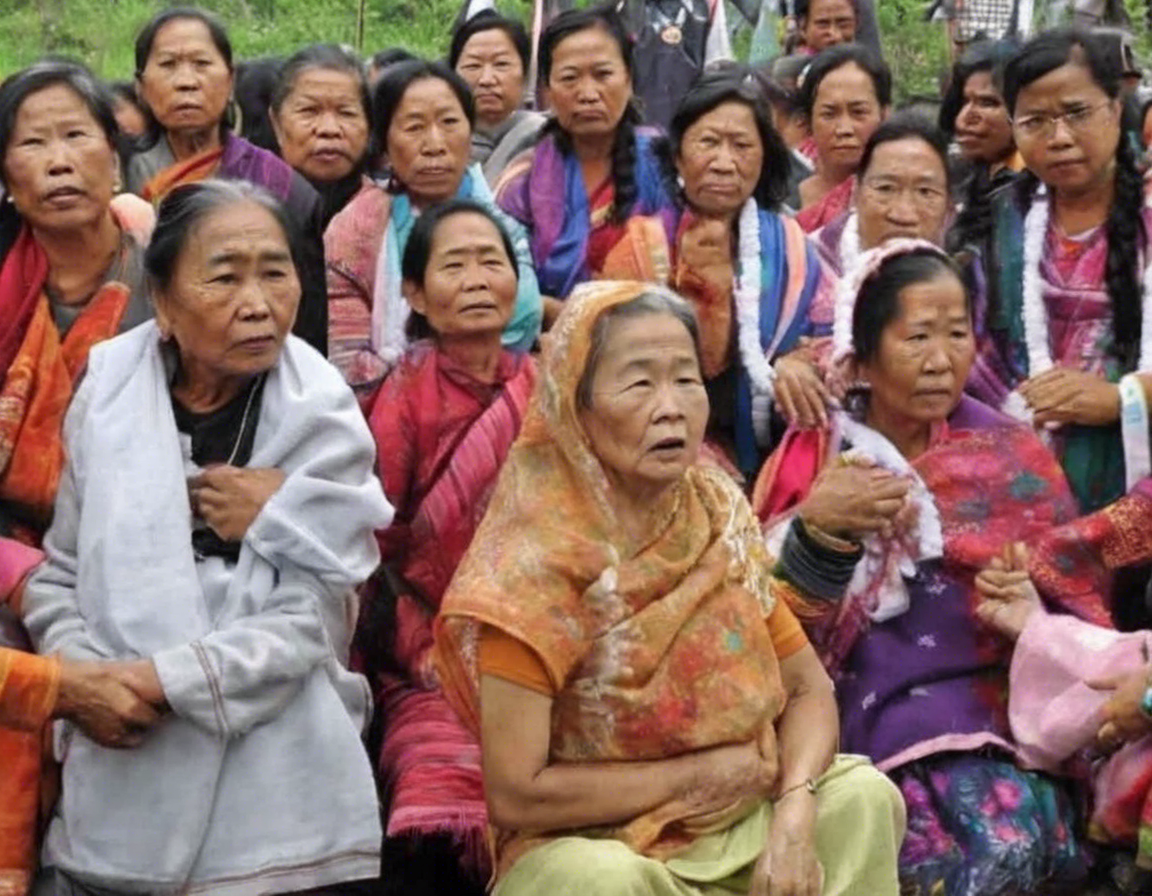The northeastern state of Manipur, located in India, has been grappling with various socio-political issues that have plagued the region for decades. Among these issues, one of the significant challenges faced by Manipur is the lack of empowerment and representation of women in decision-making processes and social structures. Women in Manipur have historically been marginalized and excluded from positions of power and influence, which has hindered their ability to contribute meaningfully to the development and progress of the state.
The Historical Context
For centuries, Manipur has been a patriarchal society where women have been relegated to traditional roles within the household and community. However, Manipur also has a rich history of matriarchal traditions and the presence of strong, influential women leaders. The Nupi Lan (Women’s War) of 1939, where Manipuri women played a pivotal role in agitating against oppressive colonial policies, is a testament to the resilience and strength of women in the region.
Challenges Faced by Women in Manipur
Despite the historical precedence of women’s involvement in social movements, the contemporary scenario presents several challenges that impede the empowerment of women in Manipur:
-
Gender-Based Violence: Women in Manipur are vulnerable to various forms of gender-based violence, including domestic violence, sexual harassment, and trafficking. The conflict situation in the region has further exacerbated these issues, leading to a sense of insecurity and fear among women.
-
Limited Access to Education: Education is the key to empowerment, yet many women in Manipur face barriers in accessing quality education due to factors such as poverty, lack of infrastructure, and prevailing social norms that prioritize male education.
-
Underrepresentation in Politics and Governance: Women are significantly underrepresented in political and decision-making spaces in Manipur. The lack of female representation not only hampers the prospects of gender-sensitive policymaking but also perpetuates a cycle of marginalization and exclusion.
-
Economic Empowerment: Limited access to economic opportunities and resources further restricts women’s ability to assert their independence and contribute to the socio-economic development of Manipur.
Empowering Women in Manipur: The Way Forward
Addressing the empowerment of women in Manipur requires a multi-faceted approach that tackles the root causes of gender inequality and fosters an environment conducive to women’s growth and participation. Some key strategies to empower women in Manipur include:
1. Education and Skill Development
- Providing equal access to education for girls and women, including vocational training programs that equip them with relevant skills for the job market.
- Promoting digital literacy to bridge the gender gap in technology and empower women with information and networking opportunities.
2. Gender Sensitization and Legal Protections
- Implementing gender sensitization programs in schools, communities, and government institutions to challenge stereotypes and promote gender equality.
- Strengthening legal frameworks to protect women’s rights and ensure swift justice in cases of gender-based violence and discrimination.
3. Political Participation and Representation
- Encouraging women’s participation in political processes through reservations, quotas, and capacity-building initiatives that enable them to contest elections and hold leadership positions.
- Creating safe spaces for women to engage in public discourse and decision-making, challenging the traditional notion of male dominance in politics.
4. Economic Empowerment and Entrepreneurship
- Facilitating access to financial resources and credit facilities for women entrepreneurs and small business owners.
- Promoting women-led cooperatives and self-help groups that enable economic independence and collective empowerment.
Frequently Asked Questions (FAQs)
-
What is the current status of women’s rights in Manipur?
Women in Manipur still face various challenges, including gender-based violence, limited access to education, and underrepresentation in decision-making processes. -
How can education empower women in Manipur?
Education can equip women with knowledge, skills, and confidence to assert their rights, pursue opportunities, and contribute to the development of Manipur. -
What role can men play in empowering women in Manipur?
Men can support women’s empowerment by challenging patriarchal norms, promoting gender equality, and advocating for women’s rights in their families and communities. -
Why is political representation crucial for women in Manipur?
Political representation enables women to voice their concerns, shape policies that affect them, and advocate for gender-sensitive solutions to the challenges faced by women in Manipur. -
How can grassroots organizations contribute to women’s empowerment in Manipur?
Grassroots organizations can provide vital support, resources, and advocacy for women’s rights, including raising awareness, providing services, and empowering women at the local level.
In conclusion, empowering women in Manipur is not just a matter of gender equality but a crucial step towards achieving sustainable development, peace, and prosperity in the region. By addressing the systemic barriers and promoting women’s empowerment in all sectors, Manipur can harness the full potential of its female population and pave the way for a more inclusive and equitable society.
